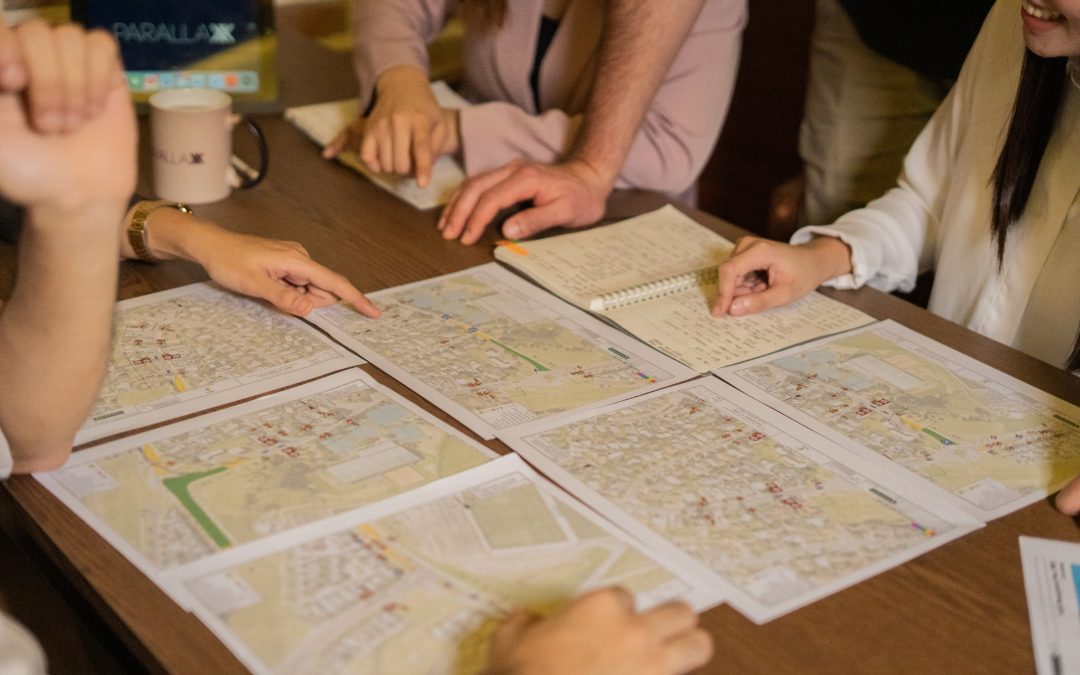The Traffic Engineering team boasts a wide range of capabilities that help support Temporary Traffic Management Plans, minor and major construction activities, documents for resource consents and risk management reviews, and more! Let’s dive into what we can help your planned work with!
Sometimes when a Temporary Traffic Management Plan (TTMP) looks like it might have a significant impact on the roading network, the team will complete a Traffic Impact Assessment (TIA). A TIA will, as it states in the name, assess the impact on traffic flow that a proposed TTMP may have with various traffic count data and traffic engineering software. We will then generate a high-level full traffic volume analysis. The TIA can cover multiple stages of work, will investigate effects on public transport, and try to mitigate any significant delays to road users. A less in-depth report to the TIA is a Traffic Assessment (TA).
A TA report is a high-level assessment of traffic volumes, can cover one or two stages of work, and may or may not use various traffic data to create some traffic modeling. This report has a quicker turnaround as opposed to the TIA.
When traffic volume data is unavailable or does not reflect on site conditions, the Traffic Engineering team can organise detailed traffic counts, or carry out high-level counts for some locations. This data can then be used to complete traffic modeling, and high-level traffic analysis as mentioned above, or any other required applications.
With traffic volume data, the Traffic Engineering team can calculate delays a less significant TTMP may have, this includes alternating flow closures, stop-go closures, and detour routes for one-way road closures, or full road closures. This will give the Road Controlling Authorities (RCA) confidence that the proposed TTMP will not cause significant delays, and give the onsite Temporary Traffic Management staff a detailed guideline for how to manage traffic flow through their worksite.
A Construction Management Plan (CTMP) is a live document that complies with the requirements set out by the Resource Consent Conditions for construction works. These works do not have to have worked directly in the RCA’s designation; however, it will look at ways to manage construction vehicle movements throughout the construction period. Traffic Engineers will again assess the current traffic flow around the construction site, roading network features, and potential safety concerns. This document can be edited and updated as the construction advances.
Traffic engineers can draft and submit temporary and permanent resolutions that ensure a proposed change to the current operation of the roading network is legal and enforceable, especially when it comes to parking restrictions. The Traffic Engineering team will design the detailed plan outlining the new proposed zones, and what is proposed to be removed or changed, and write the report to support the proposed changes. We will undertake stakeholder and RCA liaison and submit the completed report to the relevant RCA for approval.
A Vehicle Management Plan (VMP) is a permanent solution for businesses to manage traffic traversing and parking within their premises. The engineer will utilise vehicle tracking software to design movement and parking solutions to maximise the safety and efficiency of premises. This may include controls such as speed restrictions, line marking, signage, and more to effectively control the vehicles maneuvering the site.
Our team can also undertake risk assessments (road safety audits) for both temporary works and permanent locations. These look at all potential risks associated that are present or may arise at any particular location, we also investigate mitigation methods and controls that may be implemented to reduce the likelihood and/or consequences of potential risks.
The importance of our team is to provide services and results that reflect true onsite conditions and the most probable results that will be seen on site should a TTMP be implemented.
